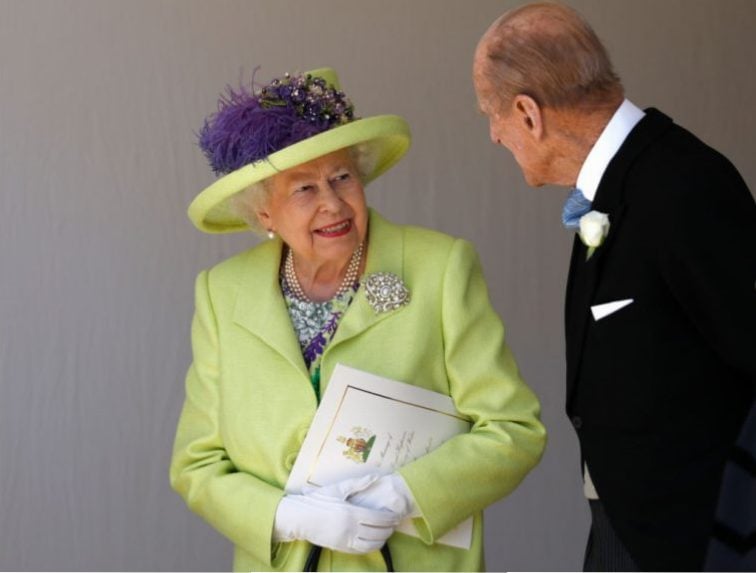Royal Title Rules: What Titles Can the Queen Give?
Receiving a new title upon marriage is nothing new for the royal family. For centuries, members of royalty have earned new honors to mark big life events. But, that’s not the only reason to give someone such a noble status. According to royal title rules, the queen can grant a new ranking to her family members — and others outside of the family — as she sees fit. But, what titles can the queen give? We take a closer look at the royal titles rules, and regulations members of royalty must follow, ahead.

What titles can the queen give?
When it comes to granting official royal titles, the queen can pretty much do whatever she pleases. That means she can give anyone a royal title. And, she is allowed to give any type of title she wishes. Could you imagine having that kind of influence? Fortunately, she’s not out here abusing such powers and, for the most part, likes to follow suit with the royal title rules — aka, peerage rules — set in place by past monarchs and traditions.
Royal title Rules
As with most anything in the royal family, there is a set of royal title rules that the queen likes to follow when granting new names for her family members. Here are the royal title rules Queen Elizabeth II keeps in mind when granting new names for those inside and outside her family.
A dukedom is the highest ranking title (next to monarch, of course)
In the royal family, a dukedom is the highest ranking title, aside from monarch. They are traditionally given to sons and grandsons of the monarch upon marriage or majority and, like other royal titles, include a geographical location.
Wives take their husbands’ names
Instead of taking the royal family’s last name, wives take on their husbands’ royal title. So, if someone is a duke, his wife would be a duchess (like Prince William and Kate Middleton, the Duke and Duchess of Cambridge). Also, children also inherit their fathers’ royal titles. Case in point: Prince George is technically Prince George of Cambridge.
Monarchs do not keep their dukedoms
When a duke ascends the throne — like Prince Charles and Prince William one day will — they do not keep their dukedoms. Instead, they are known as His Majesty, and their dukedoms become available for the next eligible suitor.
There are certain titles reserved for the heir to the throne
The heir apparent has his or her own set of titles. For example, the Prince of Wales title belongs to the heir apparent. That said, a monarch must official grant this title to his or her heir.
The monarch’s eldest child also qualifies for a special peerage
The monarch’s eldest son and daughter also qualify for special titles. Eldest sons can be named Duke of Cornwall, and eldest daughters can become Princess Royal.
Marrying a prince doesn’t make you a princess
Just because you married a prince, doesn’t mean you get to be a princess. According to peerage rules, a princess is a title traditionally given to those who are blood-related to the monarch. However, there are some exceptions, such as marrying the Prince of Wales.
Because Princess Diana married the Prince of Wales — the only prince title ranked higher than a dukedom — she adopted her husband’s name and became the Princess of Wales.
A geographical location is included
Unless the queen knights someone — to which their royal title would be “Sir” — most royal titles include a geographical location, such as Cambridge, Sussex, and Cornwall.
Reputation matters
In the royal family, reputation is important, especially when naming a royal baby or selecting an official title. The queen would hate for her family member to carry a title with a bad reputation. So, she likely takes a close look at who held the title before and if it is tainted in any way because of the previous owner’s actions.
There are lots of different titles to choose from
Queen Elizabeth can give any type of title out. That means duke and duchess, baron and baroness (or lady), viscount and viscountess, or earl and countess. However, when it comes to the geographical locations attached, there aren’t many to choose from. So, if a royal receives an official title — even if it is not high ranking — they consider themselves lucky to earn such status. After all, the queen went through a lot of trouble selecting it for them.
Check out The Cheat Sheet on Facebook!


